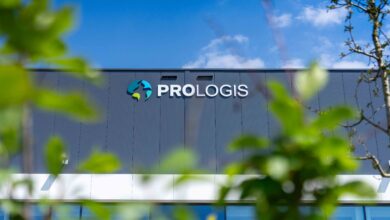Resolute Ventures sticks to its knitting with $75 million fourth fund

Resolute Ventures, an early-stage firm with offices in San Francisco and Boston, just closed its fourth fund with $75 million.
It’s an almost shockingly conservative amount of capital in today’s era of big-is-better funds. And with valuable companies like the real estate startup OpenDoor, the applicant tracking system company Greenhouse and the dog products company BarkBox in its portfolio, one imagines that seven-year-old Resolute could have raised more.
It didn’t want to do that, says firm founder Mike Hirshland, who spent 17 years with Polaris Partners before founding Resolute and soon after bringing aboard the firm’s only other general partner, Raanan Bar-Cohen, a former exec with WordPress parent company Automattic.
It’s much the same story as Hirshland shared with us back in 2017, when the firm closed its third fund with $65 million. As he told us in a call yesterday, “There was a lot of interest in having us raising a larger fund, but that would require a shift in strategy, and we want to stick with what we do.” What that is, exactly: investing “very early, in some cases, pre-product and pre-launch.” Says Hirshland, “Much of the seed-stage industry has become more focused on early signs of traction, but we’re really still betting on teams.”
Hirshland points to OpenDoor, calling its team so “phenomenal” that it “didn’t take a genius to say yes to that one.”
Greenhouse was meanwhile “two guys and a really crappy PowerPoint” when Resolute met with the team. Founders Daniel Chait and Jon Stross “wildly impressed” Hirschland, but their pitch also resonated. Says Hirshland, “There was nothing special or sexy about this big recruiting jobs market” the company was chasing. But Chait and Stross had “both done a bunch of stuff at large companies” and “seemed like the perfect team. Daniel was very CEO-like. He had a technical background but also knows how to run a business; Jonathan was the quintessential product guy.”
OpenDoor was most recently valued at roughly $2 billion. Greenhouse has not disclosed its valuation, but it has raised $110 million to date, including from Riverwood Capital and Benchmark.
“On the spectrum,” says Hirshland, “we lean toward going with a team. However, we fundamentally need to believe in the market opportunity.” Yet even then there are exceptions to the rule, he says. One case in point is BarkBox, the New York-based pet supplies company that is surviving and — says Hirshland — thriving on customers who pay it a monthly subscription fee.
Founder Matt Meeker, who previously founded Meetup.com, had “had worked with me [when I was with Polaris],” says Hirshland, and “I did not like the idea. I didn’t think a subscription doggy business would be a big one. But,” he continues, “I’d back Matt any day of the week, and now BarkBox is enjoying hundreds of millions of dollars in annual revenue, so we know who was right and wrong about that one.”
Resolute looks to fund between 30 and 35 companies with each fund. Its median size check is $750,000. It also prefers to lead deals, typically securing 10 percent of a startup’s equity by working with teams at their most nascent stages.
Asked whether Resolute has taken advantage of the vibrant secondary market to sell any of its still-private shares, he suggests it has not, but that it may well. Asked if Resolute might raise an opportunity fund at some point to support its breakout winners, Hirshland says that that’s “always on the table. We’ve been approached about one, but we don’t have the conviction yet that we know the right answer.”
For now, he says, the firm relies from time to time instead on special purpose vehicles — basically pop-up funds created to back one company at a time — to ensure its investors have as much exposure as possible to Resolute’s hardiest startups.
It has also seen a few outright exits in its portfolio, including the sale of the calendaring app Sunrise to Microsoft for more than $100 million in 2015, and the sale of Orbitera, a platform for cloud marketplaces, which also sold for a reported $100 million, to Google the following year.
Source: TechCrunch




